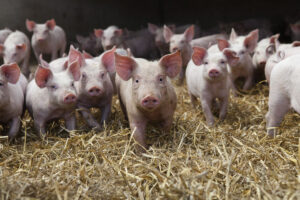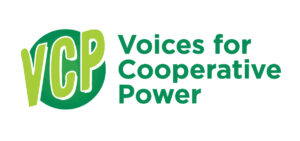 As a fifth generation family farmer and proud owner of a CAFO (Concentrated Animal Feeding Operation), I want to set the record straight on the often distorted views of my farm and other farms like mine.
As a fifth generation family farmer and proud owner of a CAFO (Concentrated Animal Feeding Operation), I want to set the record straight on the often distorted views of my farm and other farms like mine.
The term “CAFO” is often used to scare people into believing that these farms are bad. CAFO is a term used by the Environmental Protection Agency (EPA) for farms that house animals inside buildings. In fact, the majority of CAFOs are family farms like mine.
The size of farms has grown, but that doesn’t mean we’ve lost sight of the values that have always guided Illinois farmers-safe food, quality animal care and protection of our land, air and water. Advances in technology and science allow farmers to grow more food using fewer resources than ever before.
Although hog farms have gotten larger and more specialized, the vast majority in Illinois operate year-round without disrupting the neighborhood or the community, and with no negative environmental impact.
The majority of pigs today are raised inside barns. My family has raised pigs since the 1940s and our pigs have been raised both outside and inside. There are definite advantages to raising pigs inside, such as protecting them from extreme weather conditions. By raising pigs inside barns, I am also better able to protect them from diseases and predators. I can also better control the valuable manure by applying as needed to my crops as a natural fertilizer source in a sustainable way.
Today’s farms employ modern technology and innovations that allow us to capture and recycle our valuable nutrients better than we did just a generation ago. Manure from animals raised inside buildings is required to be completely contained in manure handling structures such as concrete pits, which are built based on engineering standards established by land grant universities.
Properly applying manure to crop land provides valuable nutrients from an organic source. It is part of a sustainable nutrient cycle that is beneficial to soil health and part of an environmentally sound system. Farmers use nutrient management plans to balance the nutrients in the manure with the nutrient needs of the crops. Hog manure is typically injected 6-8 inches into the soil to prevent runoff and reduce odor.
The Livestock Management Facilities Act (LMFA) governs the siting, construction and certain operating aspects of livestock farms in the state. It ensures that livestock farms will be sited on scientific, objective criteria, and the rules are applied uniformly throughout the state. Since its implementation, the law has provided a balanced approach in protecting the environment and allowing farmers the ability to continue to raise livestock on their farms.
Caring for my animals is my family’s livelihood and our ethical obligation. Animal health and well-being is every farmer’s top concern. Veterinary care and appropriate housing address animals’ needs. Antibiotics are used carefully according to veterinary oversight and FDA withdrawal requirements. This ensures that antibiotics are not present in the meat of the animal. Farmers want to give animals the best quality care, knowing that’s what it takes to provide the best quality meat for all of our families.
Both rural electric cooperatives and agriculture have deep roots in our state and benefit our rural communities. Agriculture provides employment and economic stability to our local economies. CAFOs

have helped many farm families bring the next generation back to the farm and have given many young people the ability to remain in our rural communities.
The pork industry is very important to the Illinois economy. According to a recent study conducted by Dr. Peter Goldsmith of the University of Illinois, the pork industry contributes $1.8 billion and 10,533 jobs of total economic impact to the state’s economy in addition to providing $170 million in total taxes. The pork industry is important to Illinois agriculture as it consumes more than 69 million bushels of corn and 24 million bushels of soybeans each year.
Illinois hog farmers, many of which are classified as CAFOs, are committed to doing what is right to protect our natural resources, care for our animals, support our local communities and produce safe, nutritious food.








